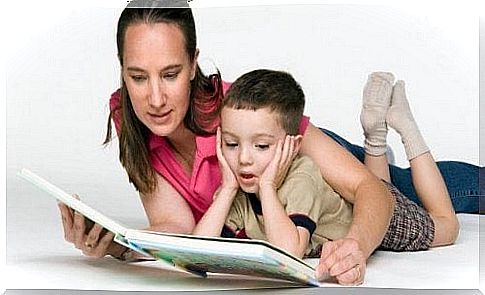The Love Of Reading: How To Teach It To Your Child

As a mother, have you ever wondered how you can teach your child to love reading ?
How can we help them appreciate the importance of language so that they beg to read stories and books? Or ask us to take them to the library?
The good news is that in every home (yes, yours too) there are several ways to get a child interested in writing, reading, and the arts of communication.
The importance of reading is undeniable:
- It is related to school success.
- Reading helps develop a good vocabulary.
- It helps to think critically.
- It is related to our writing skills.
- And it is associated with our social development.
The love of reading and writing promotes, among other things, empathy and an interest in social justice. Both are developed through reading about human conflicts, our origins, roots and possible solutions to our problems.
Developing a love of writing and reading can be very difficult for a child when they have been spending hours in front of a computer, tablet, smartphone, or other electronic game from an early age .
Because these devices almost never help when the time comes to develop good reading and writing habits in children.

How to teach your child to love reading
Talk to your children and listen to them
Have conversations with your children that challenge their thinking and imagination. These conversations should also be useful. Talk to them about things that you know will interest your children. And listen to them without interrupting their flow.
Then explain what they are saying and introduce a new word or two to the conversation. Challenge them to research, remember and reflect on what they saw or heard on a topic and to expand their knowledge.
Seek advice
Ask your child’s teacher which books your child likes best in school.
Alternatively, you can ask the librarian to suggest different books for you. These should match the age of your child and not just be children’s stories, but also include poems, songs, cartoons, and world maps.
Invite your child to have fun with sounds and words
Explore the sounds of language. For example, suggest the following:
- Play with rhymes
- Play with changes
- Splicing certain sounds
- Linking letters and sounds
Various activities related to the alphabet
Some resources you can use to have fun with the alphabet include:
- Books
- magnetic letters
- blocks
- Puzzles
- cards
Make sure you have books in sight in every room in the house. Also, these should offer a variety of styles and themes.
Provide sufficient writing material
Children also need materials to develop their writing skills. Make sure you have a box of pens, paints, markers, paper, and envelopes that your children can easily access.
Explain how books work and how they are made

As you read your child books, magazines, or other written materials, help them learn how to print and organize them.
Emphasize words as you read. Show your child the differences between pictures and text. Explain each part of the book, such as: B. the book covers and the title page.
Create a world of emotions by reading to your children
Through the daily routine of reading, children will develop a love of reading and writing. These moments can be unforgettable for your little one.
Make animal noises and show enthusiasm for the story you are reading aloud. Start creating associative images for your child. These serve as a tool so that your child can enjoy reading.
Even if the progress is slow, don’t put any pressure on your child
It is not advisable to teach your child the love of reading through a “miracle program”. Because this only leads to an aversion to reading, as the child is neurologically not yet ready to develop these skills.
Interactive books, on the other hand, are great for preschoolers. These books make noise or contain moving objects, e.g. B. an arrow that needs to be rotated.
They are therefore great for instilling a love of books in children. They can also create a desire to learn to read and write. They are also great for repeating the same story several times if your child asks you to.
If you want to teach your child to love reading, give them books as gifts on birthdays or other special days. You can also create a small library at home. This can contain books that are appropriate for your child’s age and interests.
This creates another mental picture that books are a price. Because the children see that they can be a wonderful gift. Otherwise, children usually only associate books with reading at school. Do not hesitate to put the above suggestions into practice.









